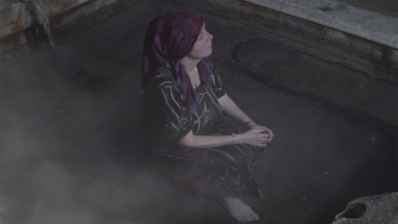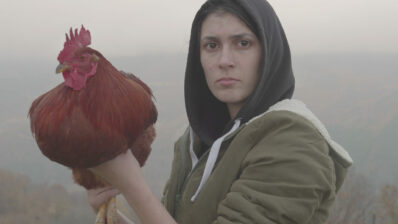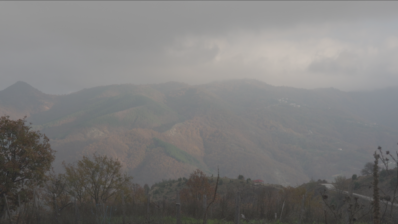Djinns and Witches
Pomak fairytales
What is a forest but a multitude – mushrooms soil plants animals people – shaped by relationships ineffable, spirits unseen.
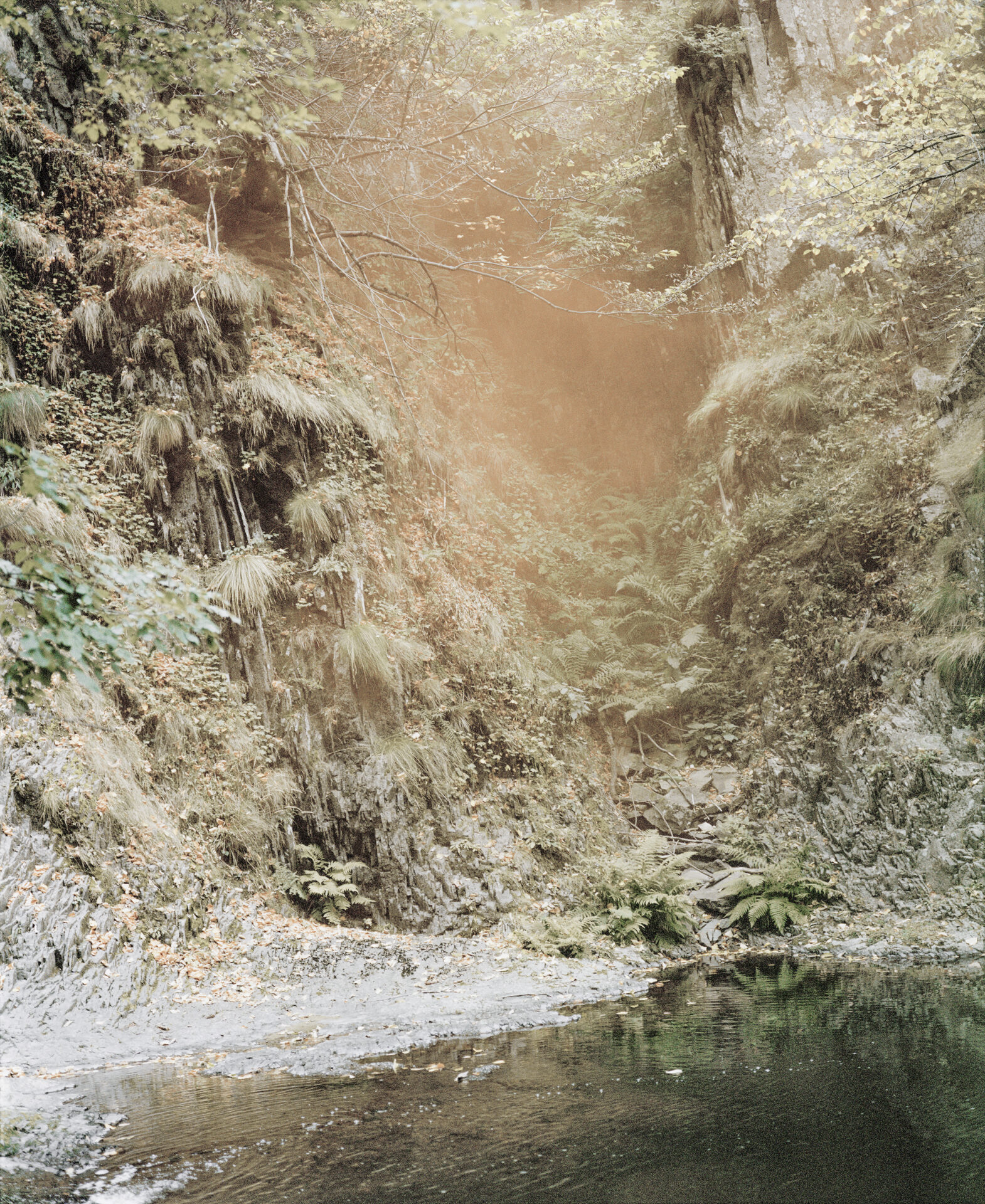
– Folk tales are a symbolic representation of reality, a mirror of civilization, and are a part of a specific history, geography and culture: in this case that of the Rhodopi mountain range.
In the region of Xanthi, there are many Pomak tales that talk about animals, imaginary creatures, and stories of human adventures that are drawn from real life –
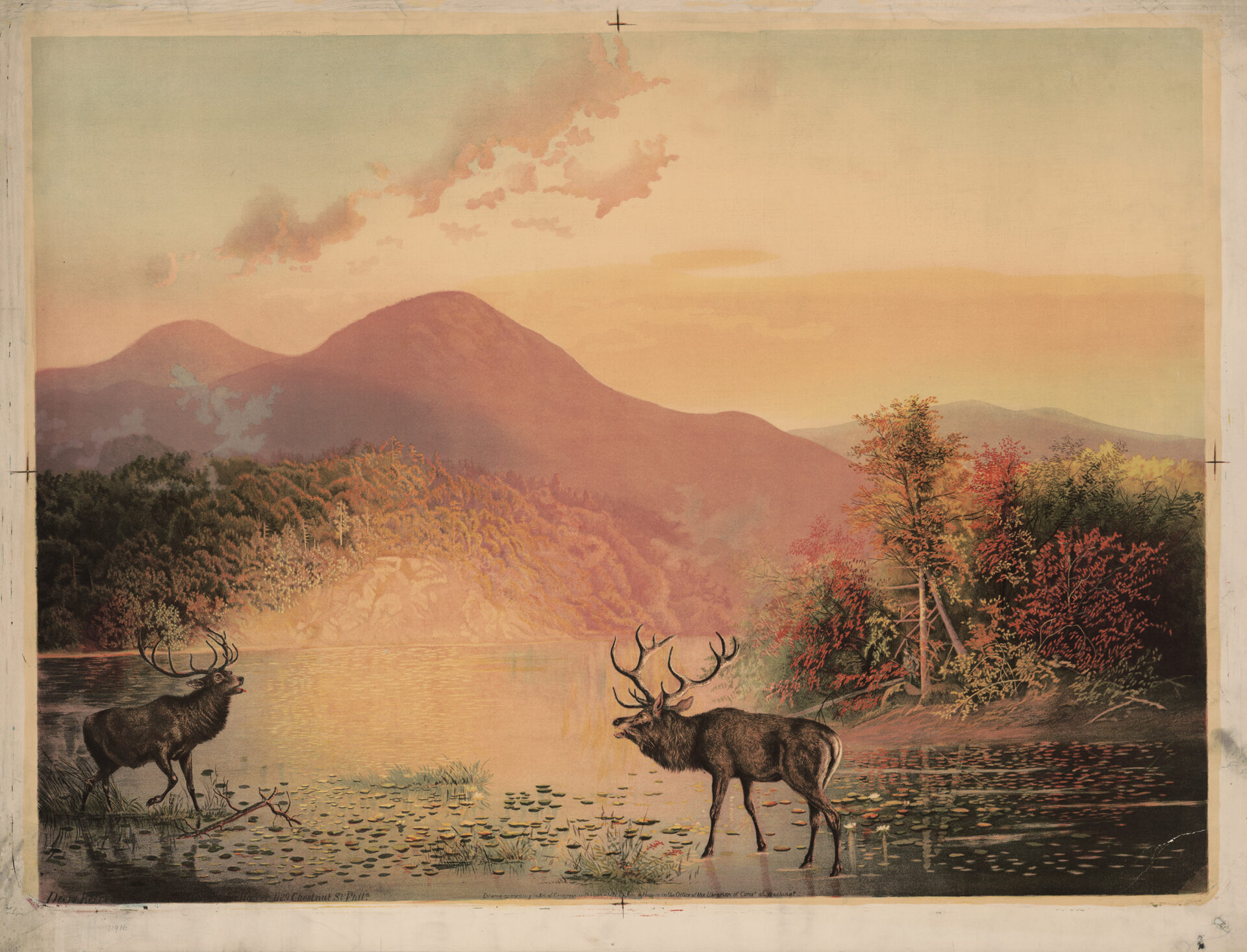
Πομάκικο παραμύθι από το χωριό της Γλαύκης, όπως μεταφέρθηκε προφορικά.
4.Ο κυνηγός που σκότωσε τα δύο του παιδιά
Στα παλιά τα χρόνια ήταν ένας κυνηγός με μάτια πεινασμένα. Ένα πρωί σηκώνεται και πάει για κυνήγι. Του βγαίνει ένας λαγός. Κι αυτός σηκώνει το τουφέκι του να τον σκοτώσει. Ο λαγός σηκώνεται στα δύο πισινά πόδια. Του δίνει σήμα πως είναι έγκυος. Έχει δύο μικρά στην κοιλιά του. Ο κυνηγός τον κτύπησε γιατί πεινούσε. Ο λαγός πέφτει και τον βλαστημάει. Του λέει:
-
Άντε, εύχομαι η γυναίκα σου που είναι έγκυος, να γίνει δίδυμα να
τα γεννήσει. Όταν γίνουν δεκαέξι χρονών να σου τα σκοτώσουν με τουφέκι.
Μετά από δυο μέρες σηκώθηκε και πάει πάλι για κυνήγι. Βλέπει ένα πουλί. Το πουλί έχει μια φωλιά με δυο πουλάκια. Το πουλί πατάει στο χώμα και ξαπλώνει ανάποδα. Με τα δύο του πόδια του δίνει σήμα.
-
Έχω δυο μικρά παιδάκια. Θα μείνουν χωρίς μάνα, λέει, για να μην το κτυπήσει. Και τα μικρά θα μείνουν νηστικά και θα πεθάνουν.
Αυτός σηκώνει το τουφέκι και το χτυπάει και το πουλί πέφτει. Και του λέει το πουλί:
-
Άντε, εύχομαι, τα δικά μου τα παιδιά θα πεθάνουν, αλλά όταν γίνουν τα δικά σου δεκαέξι χρονών με τουφέκι να τα σκοτώσουν.
Πήρε ο κυνηγός το πουλί και πήγε στο σπίτι του και το έφαγαν. Και τα παιδιά του λένε:
-
Πατέρα, καλό το κρέας αλλά μυρίζει από τουφέκι.
Μετά από δυο μέρες πάλι βγαίνει για κυνήγι. Του βγαίνει ένα
ζαρκάδι. Σηκώνει το όπλο για να το σκοτώσει. Σηκώνεται στα δύο πόδια το ζαρκάδι, του δίνει σήμα ότι είναι έγκυος. Έχει στην κοιλιά του το ζαρκάδι δύο μικρά. Αυτός σηκώνει το τουφέκι και το σκοτώνει. Και το πάει στο σπίτι του. Το γδέρνει και παίρνει το δέρμα, ράβει δυο σακάκια, για να μην κρυώνουν τα παιδιά του.
Και το ζαρκάδι τον βλαστήμησε.
-
Άντε, εύχομαι, τα παιδιά σου είναι δεκαέξι χρονών και θα τα
στέλνεις για κυνήγι με το δικό μου δέρμα, να τα περάσουνε για ζαρκάδι άλλο κυνηγοί και με τουφέκι να σου τα σκοτώσουν.
Και αυτοί αρχίζουν να τρώνε το ζαρκάδι. Του λένε τα παιδιά του:
-
Πατέρα, πολύ καλό το κρέας αλλά μυρίζει από τουφέκι.
Φάγανε το ζαρκάδι και σε δυο μέρες ετοιμάζεται με τα δυο παιδιά του. Πάει για κυνήγι και λέει στη γυναίκα του:
-
Κοίτα, γυναίκα, πόσο πολύ κυνήγι θα φέρουμε. Τώρα είμαστε τρεις.
Και ετοιμάστηκαν. Τους φοράει τα σακάκια του ζαρκαδιού και πάνε
στο κυνήγι. Αλλά πάνε τα παιδιά σε μια μεριά. Αυτός πάει από την άλλη μεριά. Του βγαίνει ένα ζαρκάδι. Αυτός σηκώνει το τουφέκι να το χτυπήσει. Το ζαρκάδι κρύφτηκε και αυτός πάει πιο πέρα. Βλέπει πίσω από ένα δέντρο το ζαρκάδι. Και αυτός σηκώνει το όπλο και το χτυπάει. Αλλά μια φωνή ακούστηκε άγρια. Όταν πήγε κοντά στο δέντρο είδε τα δυο του παιδιά σκοτωμένα. Και αυτός κατάλαβε τότε ότι τον είχαν βλαστημήσει τα ζώα γιατί ήταν γκαστρωμένα. Κι αυτός σηκώνει το τουφέκι του επειδή σκότωσε ο ίδιος τα δύο του παιδιά και ο ίδιος αυτοκτόνησε.
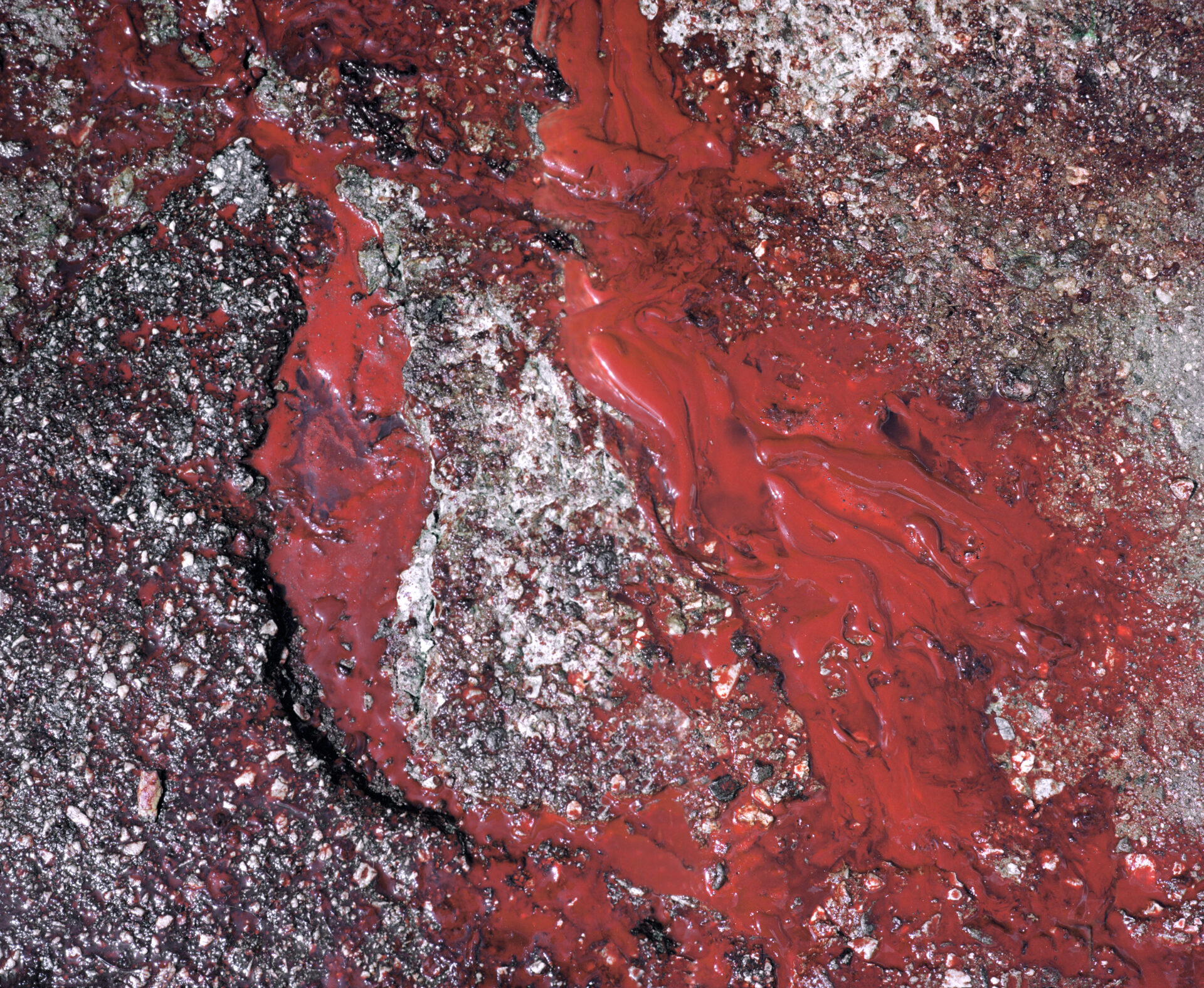
A Pomak folktale from the village of Glafki, as narrated orally.
4.The hunter who killed his own children
In the old days, there was a hunter with hungry eyes. One morning, he gets up and goes hunting. A rabbit comes out, and he raises his rifle to kill it. The rabbit stands on its hind legs, signaling that it is pregnant. It has two little ones in its belly. The hunter, driven by hunger, hits it. The rabbit falls and curses him, saying:
“Go, I hope your pregnant wife gives birth to twins. When they turn sixteen, may they be killed with a rifle.”
After two days, he goes hunting again. He sees a bird with a nest containing two chicks. The bird steps on the ground and lies upside down. With its two legs, it signals:
“I have two little ones. They will be left without a mother if you kill me. And the little ones will starve and die.”
He raises his rifle and hits the bird. The bird says:
“Go, I wish my children to die, but when your own turn sixteen, may they be killed with a rifle.”
The hunter takes the bird home, and they eat it. His children say:
“Father, the meat is good, but it smells like a rifle.”
After two days, he goes hunting again. A hare comes out. He raises the weapon to kill it. The hare stands on its hind legs, signaling that it is pregnant. It has two little ones in its belly. He raises the rifle and kills it. He takes it home, skins it, and sews two jackets for his children so they won’t get cold.
The hare curses him:
“Go, I hope your children, when they turn sixteen, will be sent hunting with my skin, and other hunters with rifles will kill them.”
And his children start eating the hare, saying:
“Father, the meat is very good, but it smells like a rifle.”
In two days, he prepares with his two children. He goes hunting and tells his wife:
“Look, wife, how much game we will bring. Now we are three.”
And they get ready. He puts the hare jackets on his children, and they go hunting. But the children go one way, and he goes the other. A hare comes out, and he raises the rifle to hit it. The hare hides, and he goes further. He sees the hare behind a tree and raises the gun to hit it. But a wild voice is heard. When he approaches the tree, he sees his two children killed. He then realizes that the animals had cursed him because they were pregnant. He raises his rifle because he killed his two children and commits suicide.
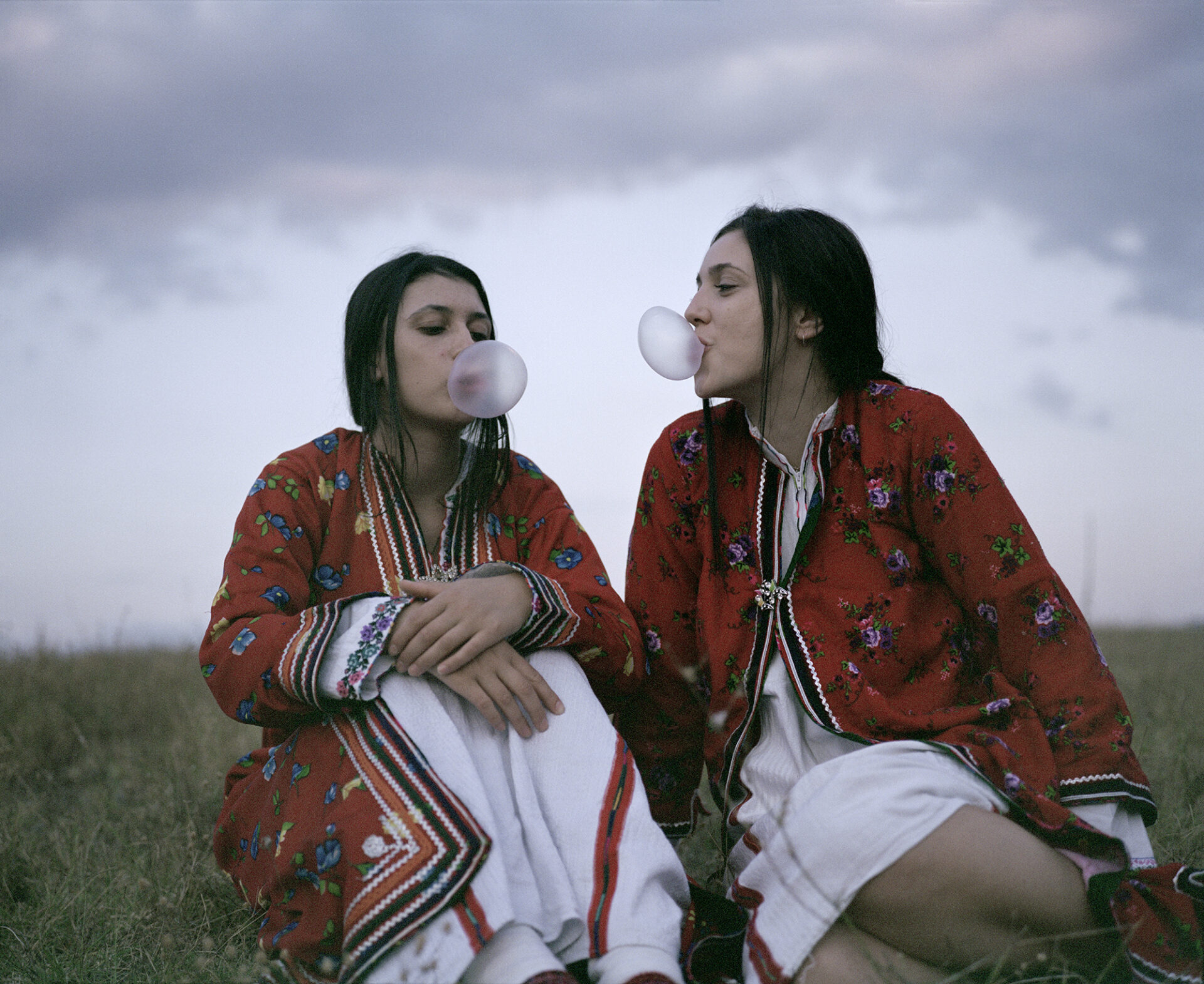
– Various ethnic groups have coexisted in the Rhodopi mountains, retaining their own linguistic, religious, and cultural traits. Their folk tales functioned as links among people sharing similar attitudes towards their past and present –
